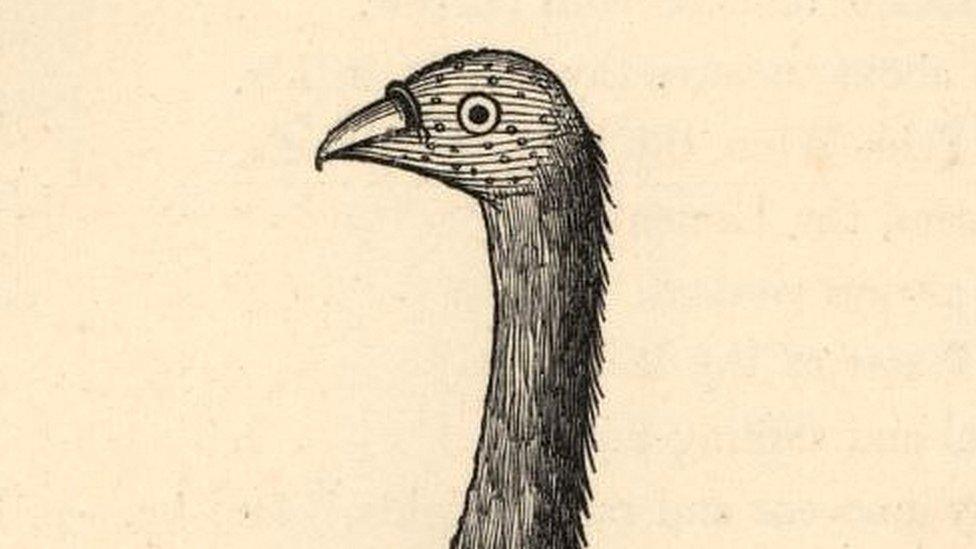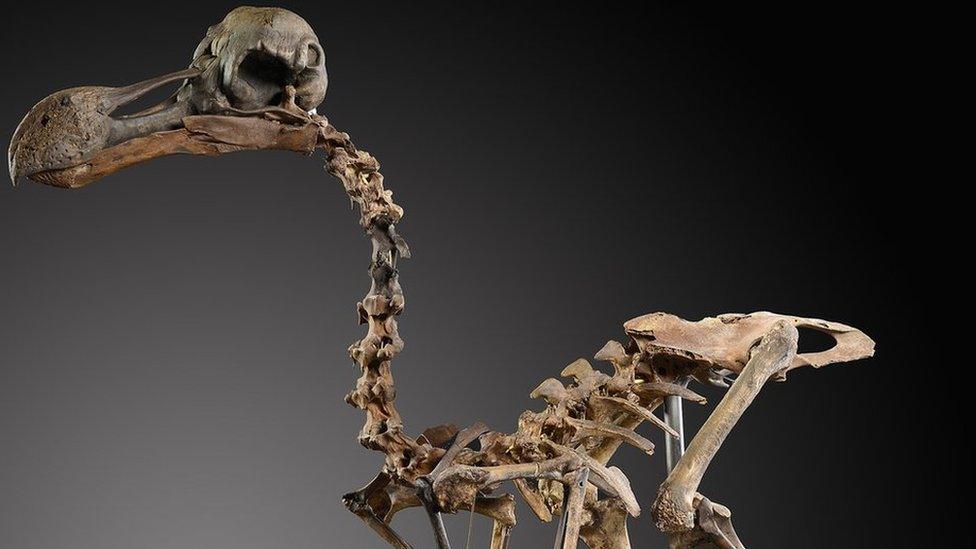Dodo bone sells for £3,800 at Stansted auction
- Published

Colonisation also brought new species to the island, such as rats, dogs, cats and pigs, which all contributed to the extinction of the flightless dodo
A femur bone from the extinct bird the dodo has been sold at auction for £3,800.
It was part of a sale called Out Of The Ordinary, external held by Sworders Fine Art Auctioneers of Stansted Mountfitchet in Essex.
The leg bone had been expected to fetch between £2,000 and £3,000. The bird became extinct in the 1680s, external.
The buyer has not been revealed, but there is a ban on exporting dodo bones from the UK.

The dodo bone had been expected to make between £2,000 and £3,000

A skeleton of a dodo and a life-size model at the National Museum of Wales, Cardiff

The dodo came to greater public prominence after one appeared in Lewis Carroll's Alice In Wonderland
An auction house spokesman said: "The story of the dodo is particularly important as it demonstrates one of the first occasions that man realised that human actions alone caused a species to die out."
The dodo was related to the pigeon family and lived solely on the island of Mauritius in the Indian Ocean, east of Madagascar.
The flightless bird had no natural predators, and adapted to living life on the ground until the Dutch colonised the island, starting in the 16th Century.
At this point dodos became hunted for sport.
Colonisation also brought new species to the island, such as rats, dogs, cats and pigs, which all contributed to the dodo's decline.

The FeeJee mermaid was constructed from a fish and a monkey, and then stuffed and preserved
The sale also included a "FeeJee [sic] mermaid" which is a hoax stuffed creature made in the Victorian era - half monkey, half fish - purportedly from Fiji, hence the name.
It sold for £4,700 having also exceeded its estimate of £1,000 - 1,500.
- Published2 December 2017

- Published25 February 2019
- Published1 September 2017

- Published24 August 2017

- Published22 November 2016
